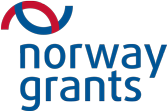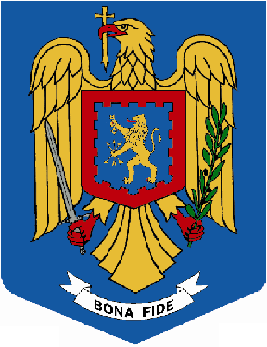PRESENTATION OF THE RO21 PROGRAMME
So, the RO21 Programme “Schengen Cooperation and Combating Cross-border and Organised Crime, including Trafficking and Itinerant Criminal Groups”, is funded by the Norwegian Financial Mechanism 2009-2014 (also known as “the Norway Grants”), and is part of the funding domain “Justice and Home Affairs”. The Programme aims to develop projects in order to reduce disparities in the European Economic Area, to create a safer environment within the space of freedom, security and justice, in a stable, peaceful and prosperous Europe.
-
The management and control system of the RO21 Programme, in order to achieve the programme’s goals, is carried out by the Ministry of Internal Affairs (MoAI), which is the "Program Operator" through two designated structures: the Schengen Directorate - which ensures the overall management of the Programme and the General Financial Directorate - which provides the financial management of the Programme.(for details click here).
-
The RO21 Programme is realized in collaboration with the Norwegian Police Directorate, which acts as Partner Programme.
-
The general objective of the RO21 programme is reached by implementing 6 predefined projects, that will be developed and managed by specialized structures of the Ministry of Internal Affairs, called “Project Promoters”. The Project Promoters are the following:
-
The General Inspectorate of the Romanian Police;
-
The General Inspectorate of the Border Police;
-
The National Agency against Trafficking in Persons;
-
The National Agency against Trafficking in Persons.
Each project promoter is responsible for the implementation of one or several projects in its area of activity, ensuring the management and reporting to the programme operator, according to the regulations of the Norwegian Grant.(for details, click here). is responsible for the implementation of one or several projects in its area of activity, ensuring the management and reporting to the programme operator, according to the regulations of the Norwegian Grant.
-
-
The Specific Objectives (SO) of the RO 21 Programme are included into the general objective, and are containing specific elements related to the particular object of activity of each project promoter. The most relevant SOs are:
-
strengthening the cooperation between the law enforcement authorities in Romania and Norway, as well as between Romania and neighboring countries;
-
developing the exchange of information and best practices, through organizing common missions and trainings;
-
achieving a common knowledge on the criminal behavior and establishing effective methods for fighting crime;
-
reducing the number of crimes committed by Romanian citizens in the European Economic Area;
-
reducing cross border crime and organized crime, dismantling criminal networks and efficiently fighting itinerant criminal groups;
-
reducing the traffic of human beings, degrading treatment and exploitation (including sexual and child exploitation), begging, prostitution and cross border crimes committed by Romanian citizens.
-
-
The funding for the RO 21 programme is provided by the Kingdom of Norway, as donor state (85% of the program) and the Romanian Government, as a national co-financing (15%). The total allocation of the Programme amounts to € 6,235,294 , out of which 5,300,000 EUR is financed by the Norway Financial Mechanism.
-
The “Agreement between the Kingdom of Norway and the European Union on the Norwegian Financial Mechanism 2009-2014 for reducing economic and social disparities in the European Economic Area” was signed in Brussels in 2010, and this document represents the basis of elaboration of Memorandum of Understanding (for details, click here).
-
The RO21 Programme is also including measures targeting vulnerable communities. Thus, according to the Program Agreement (for details, click here), 15% of the total budget of the Programme is directed to improve the situation of Roma communities. This is including measures to prevent and combat criminal behavior, especially regarding the fight against organized crime, cross-border crime and illegal activities committed by itinerant groups, and the fight against discrimination and victimization in these kinds of specific communities.






